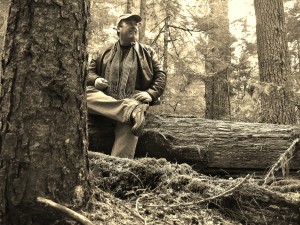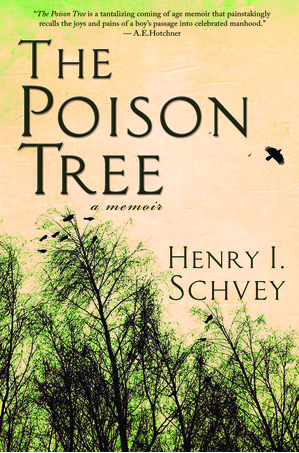Share the post "Sitting Down with Keith Byler (Flood Stage Poet)"
Sitting Down with Keith Byler (a Flood Stage Poet)
by Jenny Beatrice
 Tell us about your beginnings as a writer.
Tell us about your beginnings as a writer.
I started to understand the power of good writing in the third grade. My teacher, Miss Vossberg, was tremendously encouraging about my short stories, and she would pretend to swoon when I brought things to her. I had a big crush on her. I also had a couple of teachers in junior high school that helped me along.
In my junior year of high school at Parkway Central I took a creative writing class and my classmate was author Glenn Savan. (See the end of article for more about Glenn Savan.) We’d go out back in the woods during lunch and smoke. We always made Glenn read his stuff last because no one wanted to follow him. It was clear that Glenn would go on to become a “real writer.”
The summer following (at the age of 17) I left St. Louis and went to live in a commune on the Jersey coast. I started writing poetry as a way of wooing the object of my desire, a beautiful coed with whom I’m still very close friends 40 years later.
How do you describe your style?
Most of the time I like to keep it “accessible.” I think to some “accessible” has come to mean overly simplistic. For me, it’s more like layers of an onion. The outside layer is easy to come at, and if that’s all the reader is up for in that reading, it’s okay. But there’s more, too, if one looks. Some of my favorite poets write this way–Billy Collins, Sharon Olds, Ted Kooser. I can read their stuff a hundred times and come away with a new gem each time. One of the stories about Ted Kooser that always makes me smile is how for years he would write poetry and let his executive assistant read it. If she didn’t understand what he was getting at, he rewrote it until it was clear. Maybe I’m just not smart enough to make it too complicated!
What’s your “day job”?
I am a partner in an occupational medicine practice on the East side. I’ve done that for 15 years. Prior to that I was an ER doctor for 10 years, and was director of three ER’s during that time. That wore me down after a decade, and I went into private practice. I also do executive coaching and consulting. This past December (at age 57), I finished a master’s degree in organization development. My thesis was on the use of poetry in working with executives to increase creativity and problem solving in their professions.
What was your first published work?
Depends how you frame it. In 1981 as a freshman in medical school I had a poem published in our school paper, but I was the editor so I’m not sure that counts. In 1996 I had two poems published in a book called Emergency: True Stories from the Nation’s E.R.’s. I actually got paid and everything! It was a heady moment. I remember going to a bookstore in Alton to buy a copy for a friend. The lady at the counter said, “You know, we have a local poet in this book!” I almost peed my pants. I leaned over the counter and whispered conspiratorially, “Yes, it’s me!”
Are you involved in the St. Louis literary community?
I’m on the board of the St. Louis Poetry Center. I’m also the lone guy in a circle of six local poets who meet monthly to critique one another’s work. I try to make it to events, but my wife Danica and I live out on a little farm north of Edwardsville. It seems like no matter where we have to go in the city, it’s an hour drive each way.
How is life on the farm?
We live on eighteen acres with sixteen chickens, three dogs, and a turtle named Lucky Basker, because we rescued him as a hatchling when he shot out of our running lawn mower. Now he lives a life of leisure in a 75-gallon aquarium and eats out of our hand. (My wife thinks he loves us, but I know it’s all about the food.) People who visit us really love the land out here so we have thought about spiffing up our 1956 Airstream RV and using it for weekend writers’ retreats.
Does nature play a role in your writing?
I spent a fair amount of time in my younger days in various rural or semi-rural settings, some around St. Louis, and some on the old family farm in Northwest Missouri. A lot of my poetry reflects my love of natural things. Even some of the grittier stuff around my experiences in medicine ties back to what is basic and natural in the human condition.
Any advice for writers trying to get published?
Be more concerned about being the best writer you can be and the rest will sort itself out. How to do that? First, read a lot, a whole lot. Then don’t be afraid to write drivel. I think it was Ted Kooser who said that the only way to write great poetry was to be willing to write really bad poetry. It’s like practicing piano. There will be mistakes. Sometimes it will sound horrid. That willingness, that vulnerability, is the price of admission to writing well.
*Check back on Monday, September 29 to read more about Glenn Savan in the article “A St. Louis Ghost” by Joe Schwartz.


